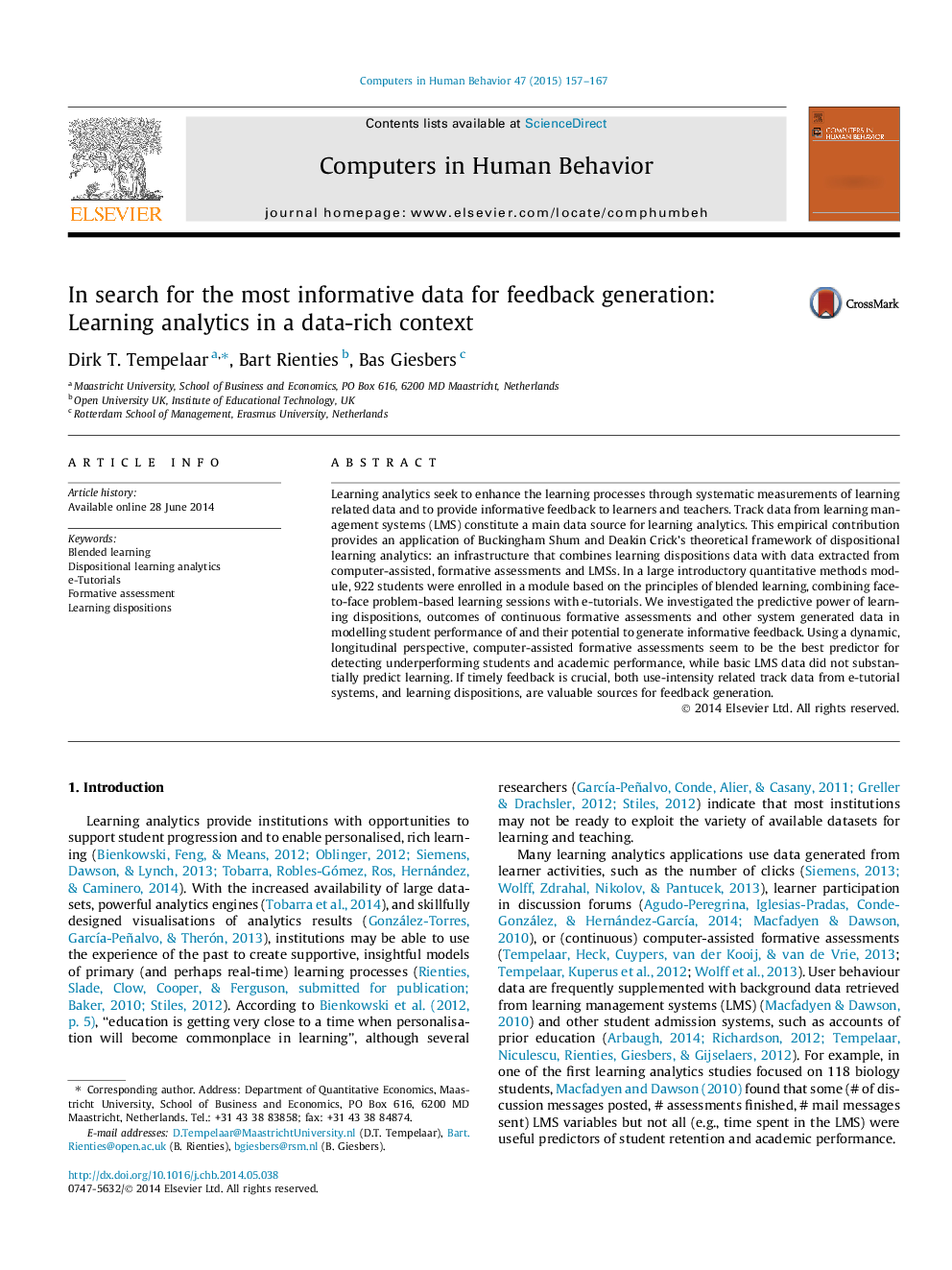| کد مقاله | کد نشریه | سال انتشار | مقاله انگلیسی | نسخه تمام متن |
|---|---|---|---|---|
| 350271 | 618436 | 2015 | 11 صفحه PDF | دانلود رایگان |
• Formative assessment data have high predictive power in generating learning feedback.
• Track data from e-tutorial systems are second-best predictors for timely feedback.
• Predictive power of LMS data falls short in LA applications with rich data sources.
• Learning dispositions take a unique position being complementary to all other data.
• Combination of several data sources in LA is key to get timely, predictive feedback.
Learning analytics seek to enhance the learning processes through systematic measurements of learning related data and to provide informative feedback to learners and teachers. Track data from learning management systems (LMS) constitute a main data source for learning analytics. This empirical contribution provides an application of Buckingham Shum and Deakin Crick’s theoretical framework of dispositional learning analytics: an infrastructure that combines learning dispositions data with data extracted from computer-assisted, formative assessments and LMSs. In a large introductory quantitative methods module, 922 students were enrolled in a module based on the principles of blended learning, combining face-to-face problem-based learning sessions with e-tutorials. We investigated the predictive power of learning dispositions, outcomes of continuous formative assessments and other system generated data in modelling student performance of and their potential to generate informative feedback. Using a dynamic, longitudinal perspective, computer-assisted formative assessments seem to be the best predictor for detecting underperforming students and academic performance, while basic LMS data did not substantially predict learning. If timely feedback is crucial, both use-intensity related track data from e-tutorial systems, and learning dispositions, are valuable sources for feedback generation.
Journal: Computers in Human Behavior - Volume 47, June 2015, Pages 157–167
